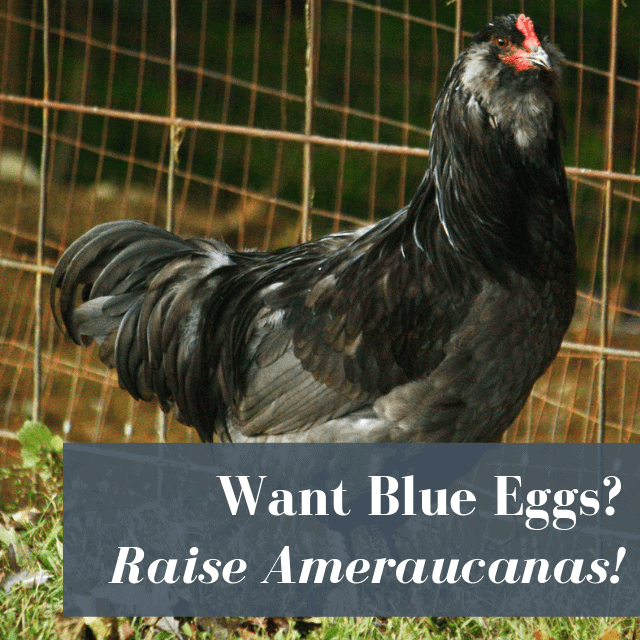Thought about adding Mille Fleur d’Uccle chickens to your flock? Not sure if they’re right for you? Read on, and discover this wonderful breed!
The Mille Fleur d’Uccle is a small bantam whose heart is massive. It is a chicken who loves affection – and reciprocates. Their speckled feathering is lovely and captivates all who look upon them. Unlike some other breeds, people buy Mille Fleurs as pets. They’re very quiet, friendly, and love cuddles. They’re the perfect size for small children. If you add them to your flock, they’ll bring great big smiles to your family!
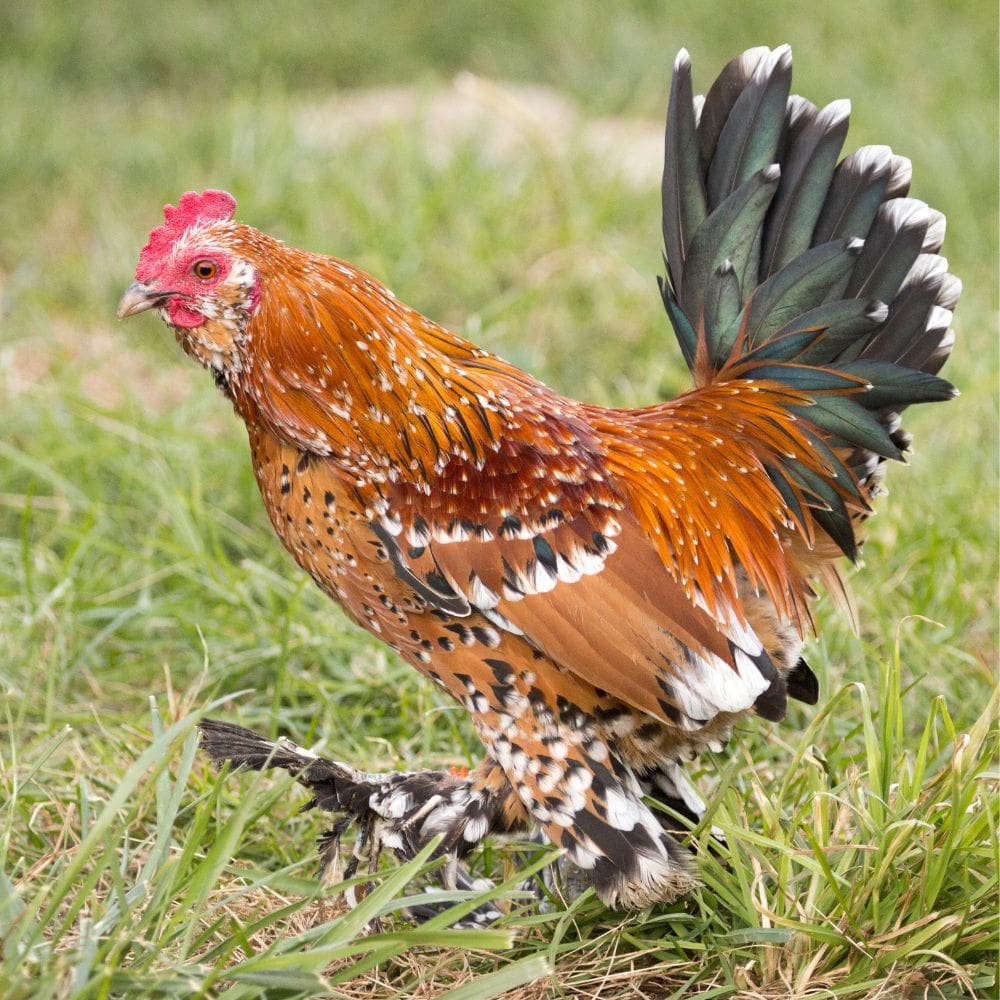
What Does “Mille Fleur d’Uccle” Mean?
The breed originated in Belgium, and the name “Mille Fleur d’Uccle” has French origins. Mille means “thousand”. Fleur means “flowers”/ De and the contractive form d’ means “of/from”. Uccle is a region of Brussels where this breed originated. So, the chicken’s name translates to Million Flowers from Uccle. How adorable!
Fun fact: Mille Fleur’s aren’t the only chicken breed with a “flower” pattern. Check out the Swedish Flower Hen in this fun article.
Where Do Mille Fleur d’Uccle Chickens Come From?
These birds have quite the origin story! In the late 1800s, a Dutch businessman living in Belgium, Michael Van Gelder, set out to create the greatest chicken breed.
By 1905, he’d reached his goal when he premiered his new breed at a chicken show – the Mille Fleur d’Uccle bantam. Soon, its popularity spread over the continent and into the UK. The USA followed soon after. The American Poultry Association added the breed to the Standard of Perfection in 1914.
What Do Mille Fleur d’Uccle Look Like?
They’re adorable and they are very showy birds! Mille Fleurs live up to their names – their red feathers are tipped with white and black. It looks like they’re covered in a thousand little flowers!
They have a muff and beard which extends all around the head. They have feathered shanks, and the feathering can be quite impressive! Female Mille Fleur d’Uccle have very small or non-existent wattles. Both males and females have a single comb.
The average weight of hens and roosters is about 1 – 2 pounds. They’re a true bantam chicken and their small size very much reflects this. There is no standard size for this breed. Because they’re so tiny, they’re more susceptible to predators (especially rats). Keep this in mind when choosing a coop for them!
If you read my article about how chickens mate, you might plan to coop your hens with other breeds. Remember, these hens can’t have large roosters mating with them. They’ll get squashed!
Personalities
This breed is perfect for any flock. Owners everywhere love these birds for their remarkably docile temperaments. The hens are very quiet. They’re fantastic around children and will allow your child to hold them. They do well in small chicken coops and are great for urban flocks. They have such a calm nature and make excellent pets. Also, the hens aren’t very broody.
They don’t fly often if their coop is welcoming. But if necessary, they’re great fliers. Larger birds have too much mass for their wings to carry them. Bantams have a leaner body that’s more suited to flight than many birds. But you won’t have to clip their wings – they tend to be homebodies. They sometimes roost in higher locations, but usually just a few feet off the ground. You might find your hens prefer roosting on swings!
Are There Any Other Varieties?
Technically, no. The Mille Fleur is a type of d’Uccle bantam. If you flip through a hatchery catalog, you’ll notice their cousins:
- Black
- Blue
- Buff
- Golden Neck
- Grey
- Mottled
- Porcelain
- Self-Blue
- White
The Porcelain d’Uccles are popular as well.
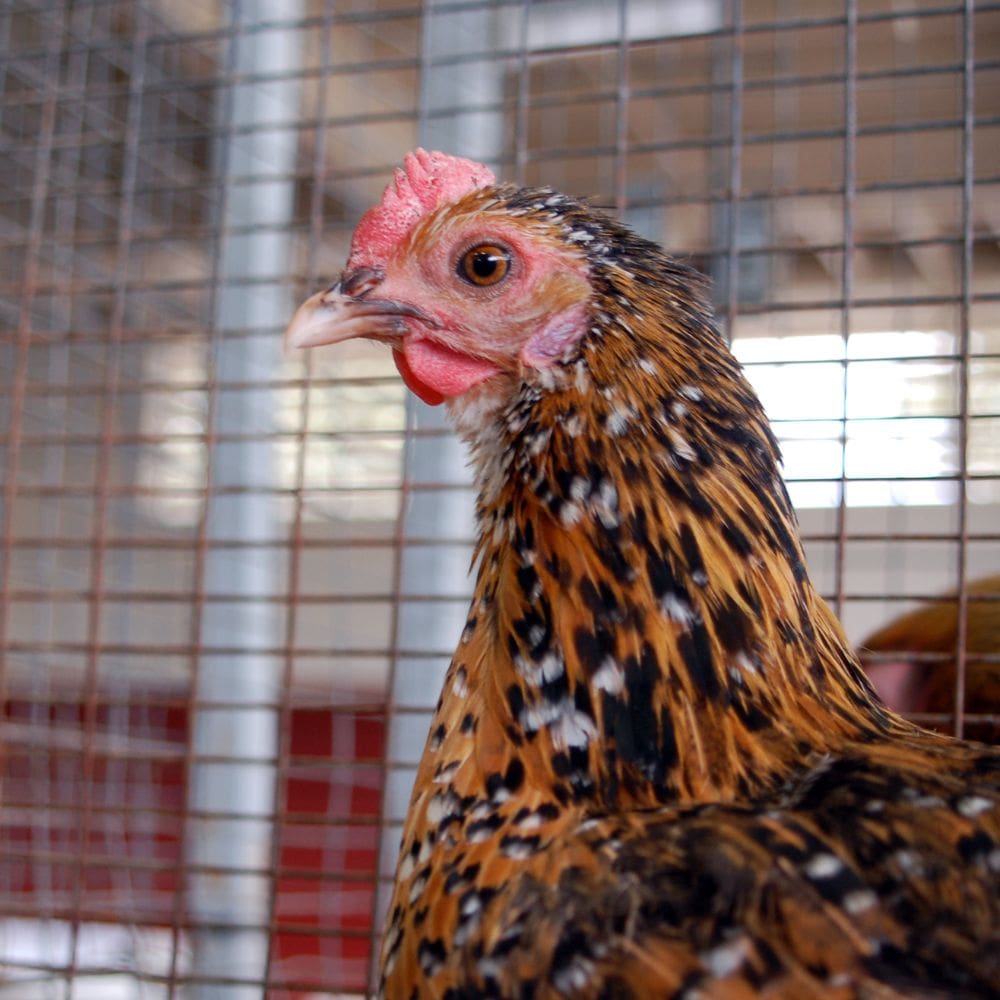
Are They Good Egg Layers?
Mille Fleurs are fair layers, mostly kept for ornamental reasons, and not for egg production. Hens lay about 160 small cream-colored eggs per year. You can basically count on 3-5 white eggs each week. Provide a safe nesting area, and you can expect your hen to lay consistently when she’s old enough. Your pullets will start laying when they’re about 6 months old.
Health Concerns
Because of their leg feathers, they are slightly more at risk for mites than other chickens. You should take steps to protect your flock from mites. Keeping your coop extra clean and providing dust-bathing locations with herbs are two of the best prevention methods.
Be sure to feed them high-quality feed with plenty of protein. Also, did you know there is such a thing as chicken vitamins? There is! And they help keep your chickens in tip-top shape for overall health. Here is a good option.
The better health your chickens are in, the less likely they will get sick.
Here’s Where To Buy Mille Fleur d’Uccles
- Meyer Hatchery in Polk, OH, offers them throughout the year.
- Murray McMurray Hatchery in Webster City, IA, offer unsexed chicks throughout the year.
- Hoover’s Hatchery in Rudd, IA, offers these chickens in minimum orders of 20 throughout the year.
- Stromberg’s Chicks and Game Birds of Hackensack, MN, offer them throughout the year.
- The Chick Hatchery in Lansing, MI, has availability from February through August.
Bringing a Mille Fleur d’Uccle into your family is a great idea! They have fun personalities, and you’ll fall in love! (Not sure what to feed a bantam to keep them healthy? Read this article next!)
Maat van Uitert is a backyard chicken and sustainable living expert. She is also the author of Chickens: Naturally Raising A Sustainable Flock, which was a best seller in it’s Amazon category. Maat has been featured on NBC, CBS, AOL Finance, Community Chickens, the Huffington Post, Chickens magazine, Backyard Poultry, and Countryside Magazine. She lives on her farm in Southeast Missouri with her husband, two children, and about a million chickens and ducks. You can follow Maat on Facebook here and Instagram here.

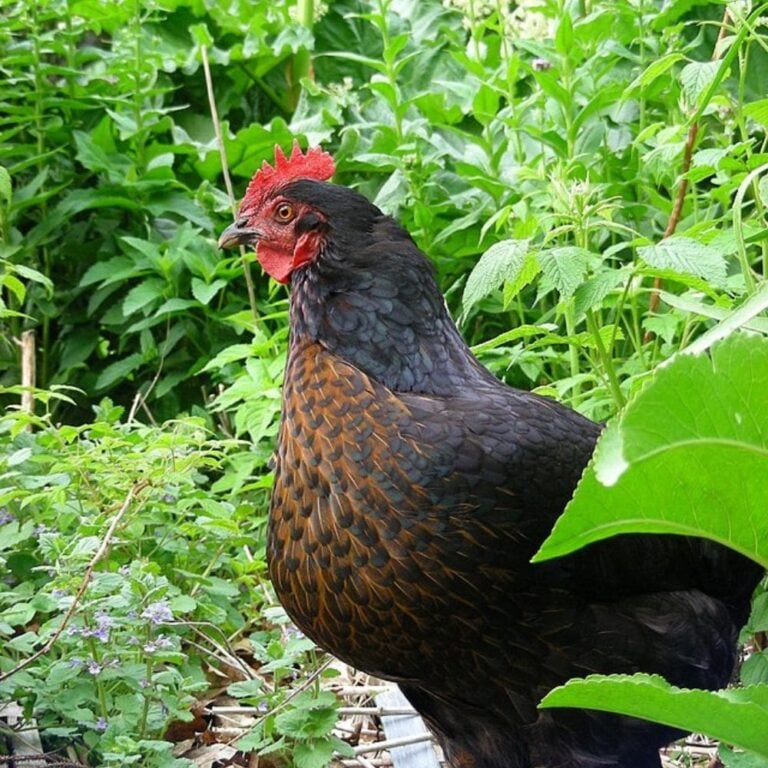
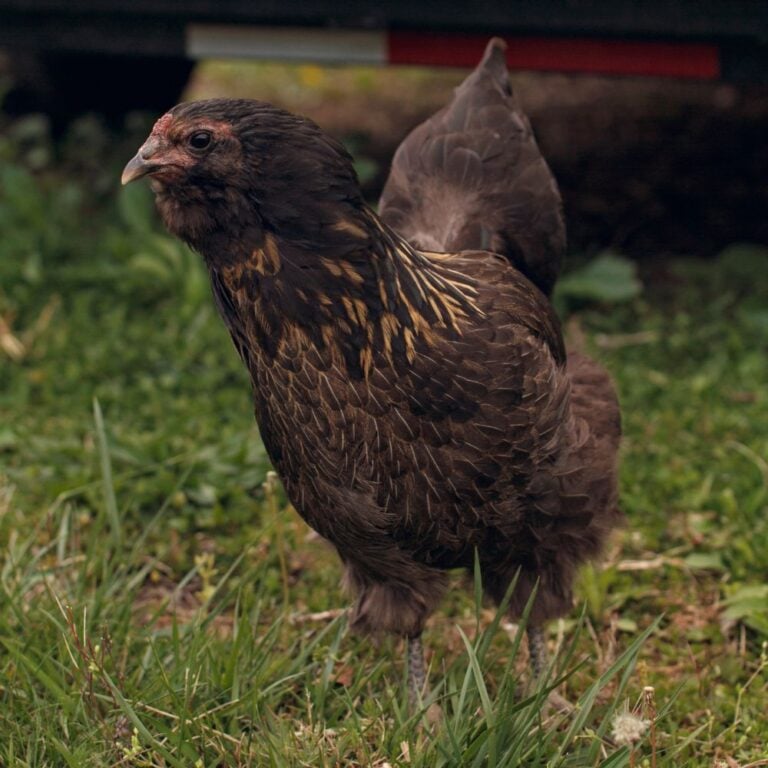
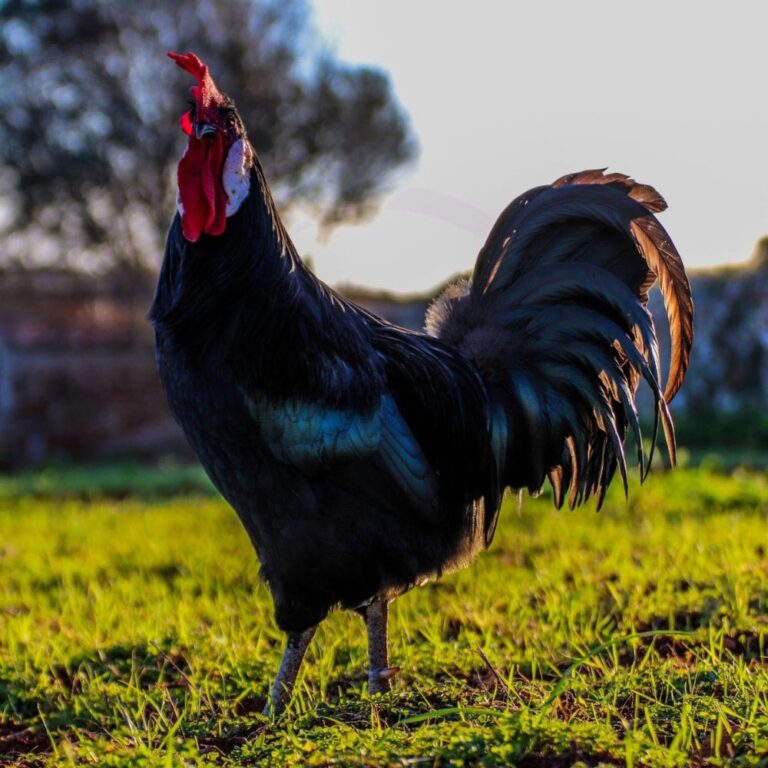
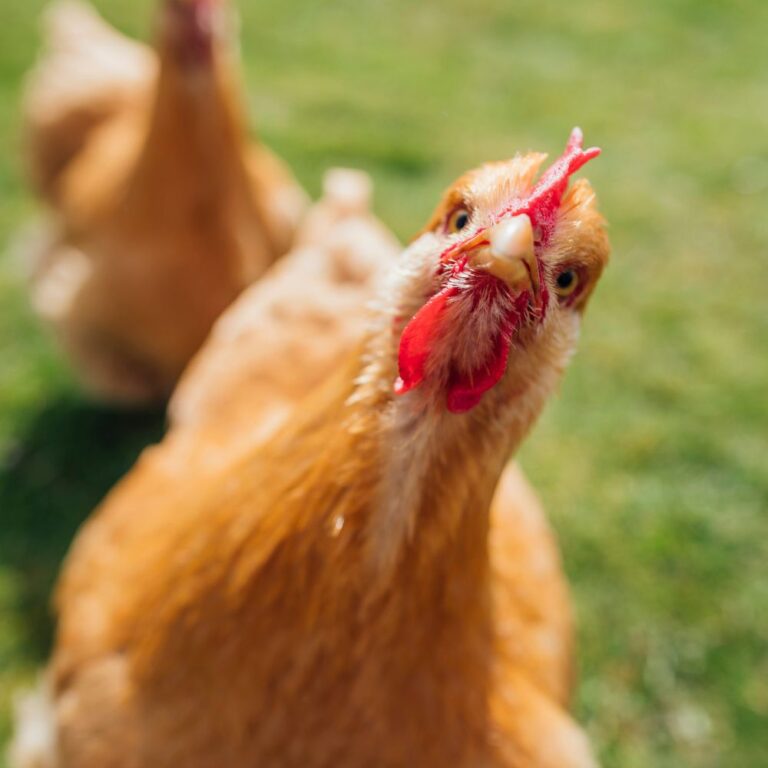
![4 Rare Breeds Of Chickens For Your Homestead: What The Cluck?! Episode 11 [Podcast]](https://thefrugalchicken.com/wp-content/uploads/2015/12/rare-breeds-of-chickens-feature.jpg)
